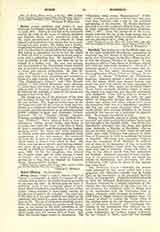

Burns, JAMES, publisher and author, b. near Montrose, Forfarshire, Scotland, 1808; d. in London, April 11, 1871. During the last half of the nineteenth century his work in the cause of Catholic literature and Catholic church music contributed much to the rapid advancement of the Church in Great Britain and to the many conversions that were made throughout that period. His father was a Presbyterian minister and sent him to a college in Glasgow with the idea that he should follow the same calling. But feeling no inclination for it, he left the school in 1832 and went to London where he found employment with a publishing firm. He acquired a thorough knowledge of this trade and then set up for himself in a modest way. He soon won success, and the ministers of the Established Church adopted him as an active auxiliary in their literary campaign of tracts and polemic publications. He then became a “Puseyite”, or high-churchman. From his press were issued many interesting and instructive books of a high literary tone in the series he called “The Englishman’s Library” and “The Fireside Library”. The Oxford Movement under Newman of course drew him within its range, with the result that, in spite of the great worldly sacrifice it meant he, followed the example of many of his friends and became a convert in 1847.
The change was one of the sensations of the time and, involved for him the making of a new business life and fortune. The Anglican publications of the old house were sold off and he set to work, and succeeded, in a comparatively brief time, in building up an equally enviable reputation as an enterprising and prolific publisher of good and wholesome Catholic literature. To his “Popular Library” Cardinal Wiseman contributed “Fabiola” and Cardinal Newman, “Callista”. Other volumes from a host of well-known writers, prayer books and books of devotion soon made the name of the firm of Burns & Oates a household word throughout the English-speaking world. Mr. Burns also wrote constantly on church music and edited and republished many compositions of the best masters. He continued his busy life in spite of a painful internal malady which ended in cancer, from which he died. His widow, who was also a convert, survived him twenty-two years, dying a member of the Ursuline community at Pittsburg, Pennsylvania, U.S.A., January, 1893. Of his five daughters, four entered the Ursuline Order and the other became a Sister of Charity. His only son was ordained a priest, serving for a long time as chaplain at Nazareth House, Hammersmith, London.
THOMAS F. MEEHAN

